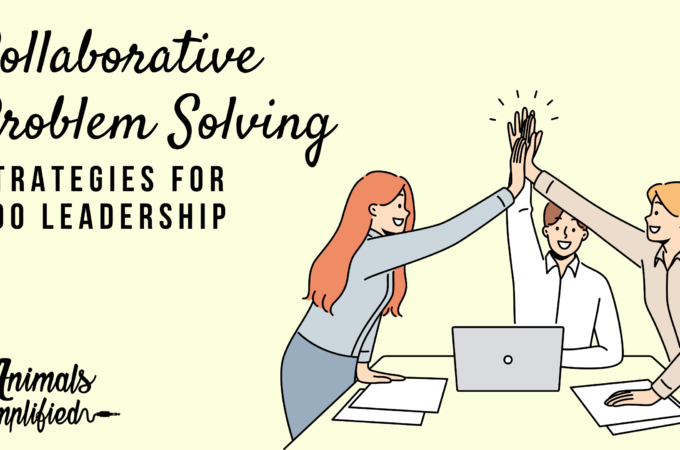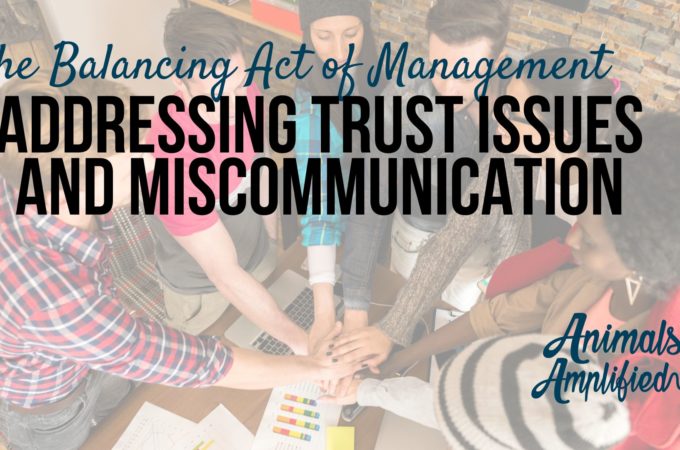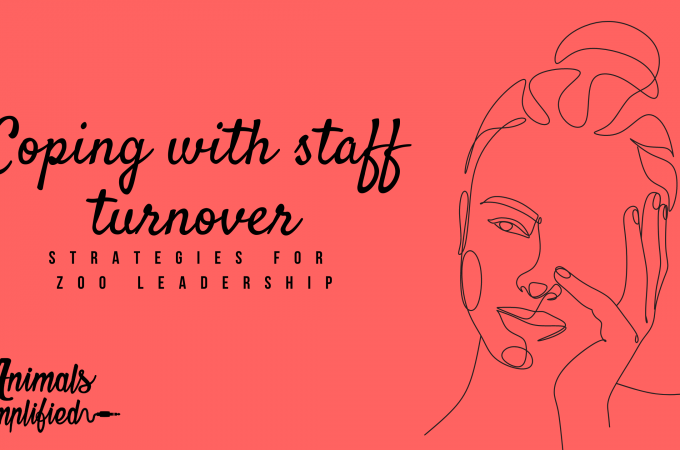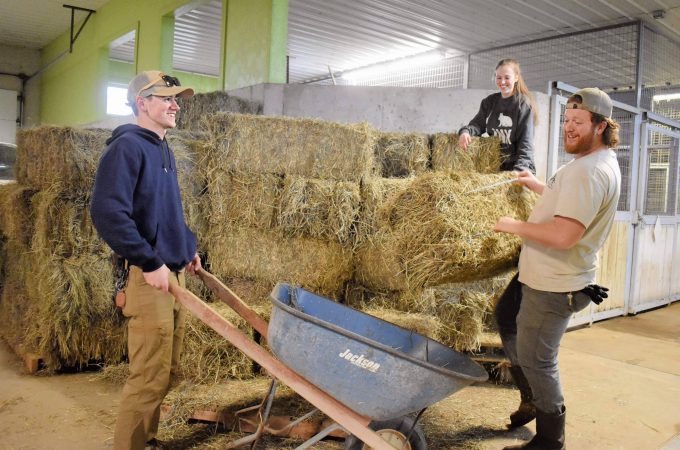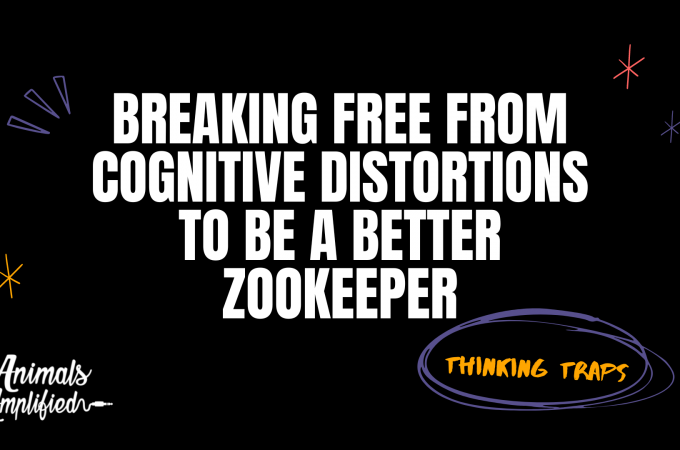
4 Tips to Avoid Micromanaging Your Team
Micromanaging, nitpicking, and fault finding are among the most common examples of bullying seen in the zoo industry. I’m going to share 4 tips to avoid micromanaging your team.
But first, we need to define what micromanaging is!
Micromanaging is a type of managing behavior where the manager excessively supervises, controls the employees’ work and processes, and limits delegation.
Bullying
But that doesn’t sound like bullying to me! Bullying, by our definition, is:
The repeated destructive behavior patterns with the conscious or unconscious attempt to harm someone. There must be a target. It needs to be harmful. There needs to be a pattern of mistreatment. In other words, repeated, unreasonable actions directed at a person.
What bullying is not:
- Manager holding staff accountable for performance, behavior, etc.
- Conflict or expressing a different opinion
- Having a bad day, losing your temper once, or raising your voice in a high-stress environment
So if a manager is nitpicking an employee’s work, supervising them closely after they’ve completed training in our turnover process, controlling the details of everything the employee does, and not delegating to that employee, it falls under the umbrella of bullying.
Are you a micromanager?
If you find yourself:
- asking to be cc’d on every email
- being focused on the details rather than the big picture
- expect overly detailed reports/information
- find yourself frustrated that no one does things the way you would
- exhausted because no one can do anything right
You might be a micromanager.
It’s okay! We forgive you. You’re allowed to grow from your mistakes. And it’s okay because today is a new day, with a new opportunity to make your world a better place to be.
So here are your 4 tips to avoid micromanaging your team.
Delegate
You have to become an expert at delegating. This skill is complex, and it requires a lot of practice. Most zookeepers are piling too much on their plate and running at max speed to get it all done. Zoo leaders are no different. Remember, we were zookeepers once too. You’ve got to slow down to delegate tasks, projects, concepts, plans, exams, procedures, shipments, records, paperwork, etc. But how?
First, you have to have adequately trained your team in the first place. I recommend three phases of training in any turnover or training process. The first phase, called “observe and learn,” is where you are doing most of the work and your trainee is working alongside you. They observe what you are doing, ask questions, and you explain the why. The second phase is called “watch and clear” when the trainee is doing most of the work, but you are still there or nearby providing feedback. Lastly, your trainee will enter the “independent” stage. In this stage, you debrief the task beforehand and review it afterward to provide coaching and feedback.
Anyone can apply this learning pattern to everything from learning how to clean a habitat to walking a new animal on a leash. The independent stage is essentially delegation. You review your expectations beforehand, focusing on the outcomes, not the steps to get there. After that, you set checkpoints and provide feedback at those checkpoints and adjust accordingly. Last you follow up, and both parties weigh in on how things went. Check out this easy read if you want a short but compelling read on delegation.
Let go of perfect
What does success look like? What does perfection look like? If you’re an Enneagram 1 you probably said, “Well, they’re the same thing.” However, perfection isn’t always what success looks like. One of the biggest failures in the zoo industry is that cleaning to perfection is still the mark to be achieved. In reality, healthy animals exhibiting natural behaviors should be a sign of success. That doesn’t always mean pristine and sparkling holdings. In general, I think we clean too much.
We expect perfection from ourselves and others, which is challenging to attain. When you learn to let go of perfection, you make room for learning and growth. If you clearly define what success looks like, your team may take a different path to get there at times. It’s also possible that it won’t look exactly like what you expected. Before you react and start nitpicking and finding fault, take a breath and ask yourself, “Does it matter?”
Set clear expectations
If you haven’t seen the video of the dad making peanut butter and jelly based on his kid’s instructions, click here. He takes things VERY literally. When you’re training a new person, you often suffer from the curse of knowledge. We know how to do it, so we forget what it’s like not to know.
“Clean this exhibit” Does not provide clear expectations. What does clean look like? I can remember raking lines in the sand in large expansive exhibits after picking up the poop and scrubbing the waters. Why did we rake the lines? Because that was how clean was defined at that facility. Management might shame me at another facility because it would make the habitat look unnatural.
Breaking down the steps, tools needed, the order in which to do things, and describing or showing the result should be is setting clear expectations. The need for clarity is why the “observe and learn” and “watch and clear” training levels are essential. It gives you a chance to show what you expect, see what you expect, and provide feedback on what you desire. So take the time to show your team what you expect.
Don’t forget the positives.
If this is the only tip you internalize, it will probably make the most difference. Sometimes micromanaging feels like bullying because the constant focus on the 5% our employees can improve on means that everyone forgets the other 95% they’re doing right! Even out your feedback and look for the good.
A good friend of mine and I used to watch training sessions together. Being an enneagram 8 I couldn’t help but blurt out every time I saw something that the trainer could correct. Christine always watched quietly and then only said one thing at the end of the session.
I asked, “Why didn’t you point out everything they could improve on?”
“That’s a lot to process and incorporate. I watch the entire session and then try to identify the one thing that would make the most difference. Let them work on that, and then next time, I’ll point out something new.”
Christine didn’t realize what she was doing, but she ensured that the employee wasn’t overwhelmed by nitpicking and criticism. She always found something positive to say and gave them their one thing to improve.
As humans, we focus on the negative. If 1 out of 10 pieces of information you give your employees is negative, they might focus on the 1, but at least they have the other 9. Whereas, if you only provide feedback when something needs correcting, they have nothing positive to remember.
Example
Those are the four tips to avoid micromanaging your team. Now, let’s use the example of cleaning a habitat. After phase 1 and phase 2, the trainee seems prepared to take on the cleaning independently. So before you leave them alone for the first time, you review all the steps together.
Manager – “Okay, walk me through what you’re going to do.”
Trainee – “I’m going to check inside holding to ensure it’s secure and set up for my animals. Then I’m going to shift them inside. Today is a light clean day, so I have more time for training and enrichment, so I’m going to spend some time releasing some live minnows, raising the pond’s water level, and adding some sod to parts of the exhibit. Then I’m going to scrub waters and refill, pick up all feces, and make sure all my tools are off exhibit. After that, it will be time to shift them back out.”
Manager – “Perfect, don’t forget to put food on the log for shifting reinforcement and spot clean your windows. The main goals are an exhibit that meets USDA standards for cleanliness, windows the guests can see through, and animals exhibiting natural behaviors! I’ll come back at 9:15 to see how it goes.”
After they finish
The employee goes to work knowing what the standards are and how to accomplish them. After the task is complete, another quick conversation takes place.
Manager – “How did your morning go?”
Trainee – “Adding sod took me a little longer than I thought, but everything else went well. There’s a spot over here on the windows I had trouble with. Do you have any tricks?”
Manager – “Oh, yeah, I use a magic eraser on that spot, and it comes off with some elbow grease. I think your enrichment experience was worth it. It gave them things to do they would expect in spring in their native habitat. The waters look perfect. All the algae is gone, and there isn’t anything floating in there. Next time spend a little more time getting feces out. I see some spots you missed here and over here.”
Trainee – “Okay, thanks! Also, I used a squeegee on the windows instead of the cloth. I prefer that more. Is that okay with you?”
Manager – “Absolutely, as long as the windows are clean in the end and you’re done by 9:15, you can use whatever you like to get there.”

